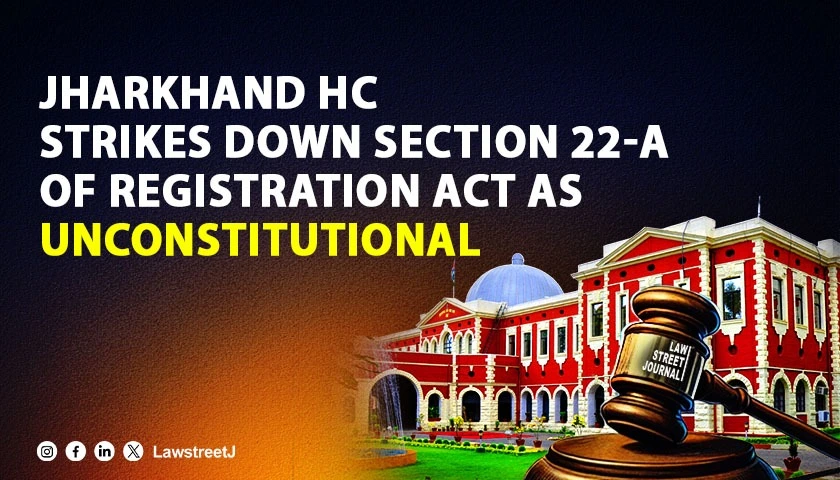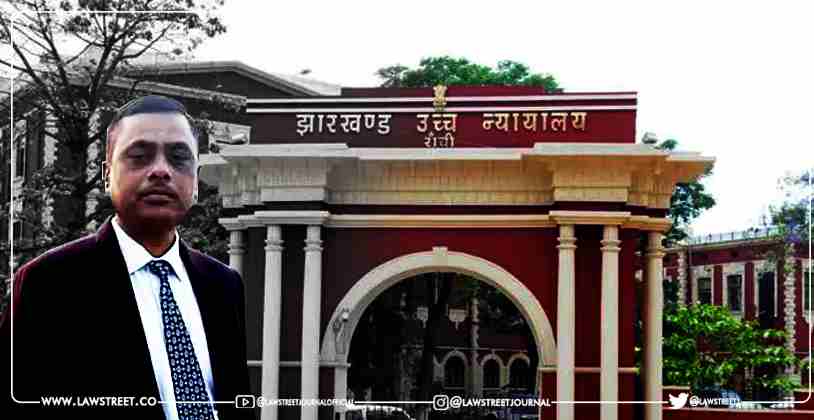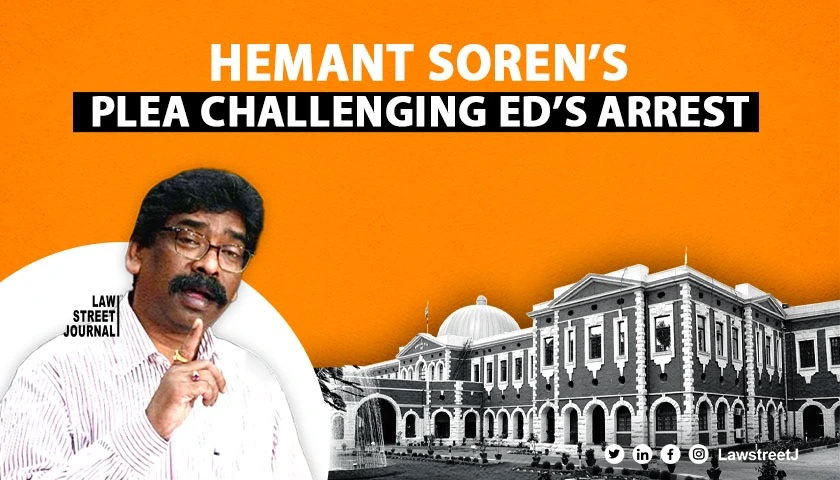Jharkhand: The Jharkhand High Court has delivered a significant judgment, striking down Section 22-A of the Registration Act, 1908. This provision was originally introduced by the State of Bihar through Bihar Amendment Act 6 of 1991 and was subsequently adopted by the State of Jharkhand.
Section 22-A of Registration Act Declared Void by Jharkhand High Court
A division bench comprising Chief Justice M.S. Ramachandra Rao and Justice Rajesh Shankar made crucial observations on the constitutional validity of the provision, which empowered the state government to declare certain registrations as being against public policy.
The court was hearing multiple writ petitions filed by various petitioners challenging “the constitutional validity of Section 22-A of the Registration Act, 1908, as introduced by the State of Bihar vide the Bihar Amendment Act 6 of 1991, which has also been adopted by the State of Jharkhand, along with the consequential notification No.1132 dated 26.08.2015 issued thereunder.”
Section 22-A, as applicable in Jharkhand, stated:
“The State Government may, by notification in the official gazette, declare that the registration of any document or class of documents is against the public policy. Notwithstanding anything contained in the Act, the Registering Officer shall refuse to register any document to which the notification issued under sub-section (1) is applicable.”
The court relied on the Supreme Court’s decision in State of Rajasthan & Ors. vs. Basant Nahata (2005), which dealt with a similar amendment introduced by the State of Rajasthan. The Supreme Court had held that “the doctrine of ‘public policy’ is vague and uncertain, and there are no guidelines to interpret the same. It is not possible to define ‘public policy’ with precision at any point of time, and it is not for the Executive to fill the grey areas, as the said power vests in the judiciary.”
The Jharkhand High Court also rejected arguments asserting that the State, being a higher authority with delegated powers, would not misuse its discretion.
Provision Violates Article 14 and 246, Says Jharkhand HC in Landmark Ruling
Accordingly, it held that such provisions are ultra vires Articles 14 and 246 of the Constitution of India.
In its judgment, the High Court, while referring to the Supreme Court’s ruling, emphasized that “whenever interpretation of the concept of ‘public policy’ is required, it is for the judiciary to do so. Even the power of the judiciary in this regard is very limited. What is essentially within the exclusive domain of the judiciary cannot be delegated to the Executive unless the policy behind it is clearly laid down.”
Based on the binding precedent set by the Supreme Court, the Jharkhand High Court struck down Section 22-A of the Registration Act, 1908, as amended by the Bihar Amendment Act 6 of 1991 and adopted by Jharkhand, along with the consequential notification dated 26.08.2015.
The court ordered: “All orders passed by the Sub-Registrars or officials of the Registration Department pursuant to the notification dated 26.08.2015 shall stand set aside.”
The writ petitions were allowed to the extent stated above, with other issues raised by the petitioners left open.
Case Title: Chotanagpur Diocesan Trust Association (CNDTA) & Anr. vs. State of Jharkhand & Ors.




![Supreme Court Collegium approves new Chief Justices for five key High Courts in India [Read Recommendations]](/secure/uploads/2023/12/lj_8000_380d1135-6f3a-4988-a00a-4d5cd5901815.jpg)
!['Arbitrary, impermissible,' SC quashes HC's resolution raising aggregate cut off marks on district judges appointment [Read Judgment]](/secure/uploads/2024/02/lj_3605_Rule-for-Judge-Selection.webp)





